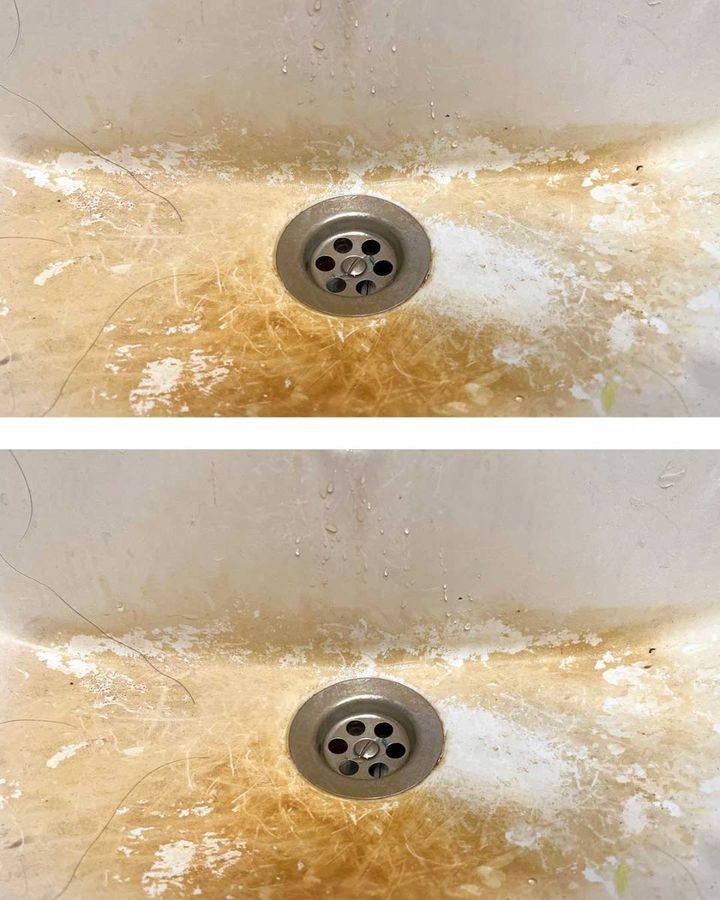Hard water stains, limescale buildup, and rust spots can make any sink look dirty and neglected. These stains not only affect the appearance of your sink but can also lead to long-term damage if not properly treated. If you’ve just moved into a place or your tenant left behind a mess, don’t worry—you can restore your sink to its original shine with the right cleaning methods.
This article will guide you through the best ways to remove lime and rust stains from your sink using common household ingredients and effective commercial solutions.
Understanding Lime and Rust Stains in a Sink
Before tackling the stains, it’s essential to understand what’s causing them.
Lime Deposits (Limescale Buildup)
Lime stains are chalky white or grayish residues left behind by hard water. These deposits are calcium carbonate, a mineral that builds up when water evaporates. If not cleaned regularly, limescale hardens and becomes more difficult to remove over time.
Rust Stains
Rust stains appear as reddish-brown spots or streaks and are usually caused by:
Iron-rich water reacting with oxygen (oxidation).
Metal fixtures or pipes corroding, leaving rust residue in the sink.
Leaving metal objects (like cans or razor blades) sitting in the sink for too long.
Hard water and moisture accelerate rust formation, making regular maintenance essential.
How to Remove Lime and Rust Stains from Your Sink
There are several effective methods to clean lime and rust buildup from sinks. You can use natural cleaning solutions for a gentler, eco-friendly approach or commercial cleaners for heavy-duty cleaning.
1. Vinegar and Baking Soda (Best for Limescale Removal)
White vinegar is acidic, making it excellent for breaking down mineral deposits, while baking soda acts as a mild abrasive to scrub away stains.
How to Use This Method:
Soak the Sink: Pour white vinegar directly onto the stained areas and let it sit for 10–15 minutes to break down the mineral buildup.
Scrub with Baking Soda: Sprinkle baking soda over the vinegar-soaked stains and use a sponge or scrubbing brush to scrub the sink.
Rinse Thoroughly: Wash the sink with warm water and wipe it dry.
This method is safe for stainless steel, porcelain, and ceramic sinks.
2. Lemon and Salt (Best for Rust Stains)
Lemon juice is naturally acidic and dissolves rust, while salt acts as a gentle abrasive.
How to Use This Method:
Cut a lemon in half and squeeze the juice over the rust stains.
Sprinkle salt on the stains and let it sit for 10 minutes.
Scrub with the lemon rind or a sponge to loosen the rust.
Rinse with warm water and wipe dry.
see continuation on next page
